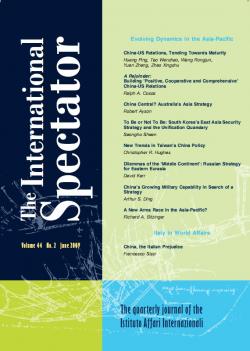The International Spectator, Vol. 52, No. 1, March 2017

22/03/2017
Sezione speciale su Think tanks and foreign policymaking
Free: How China’s New Silk Road Threatens European Trade
Free: Navigating the Unknown: Barriers to Evidence-Based Defence and Security Policy in the European Union
-
Numero
52/1



